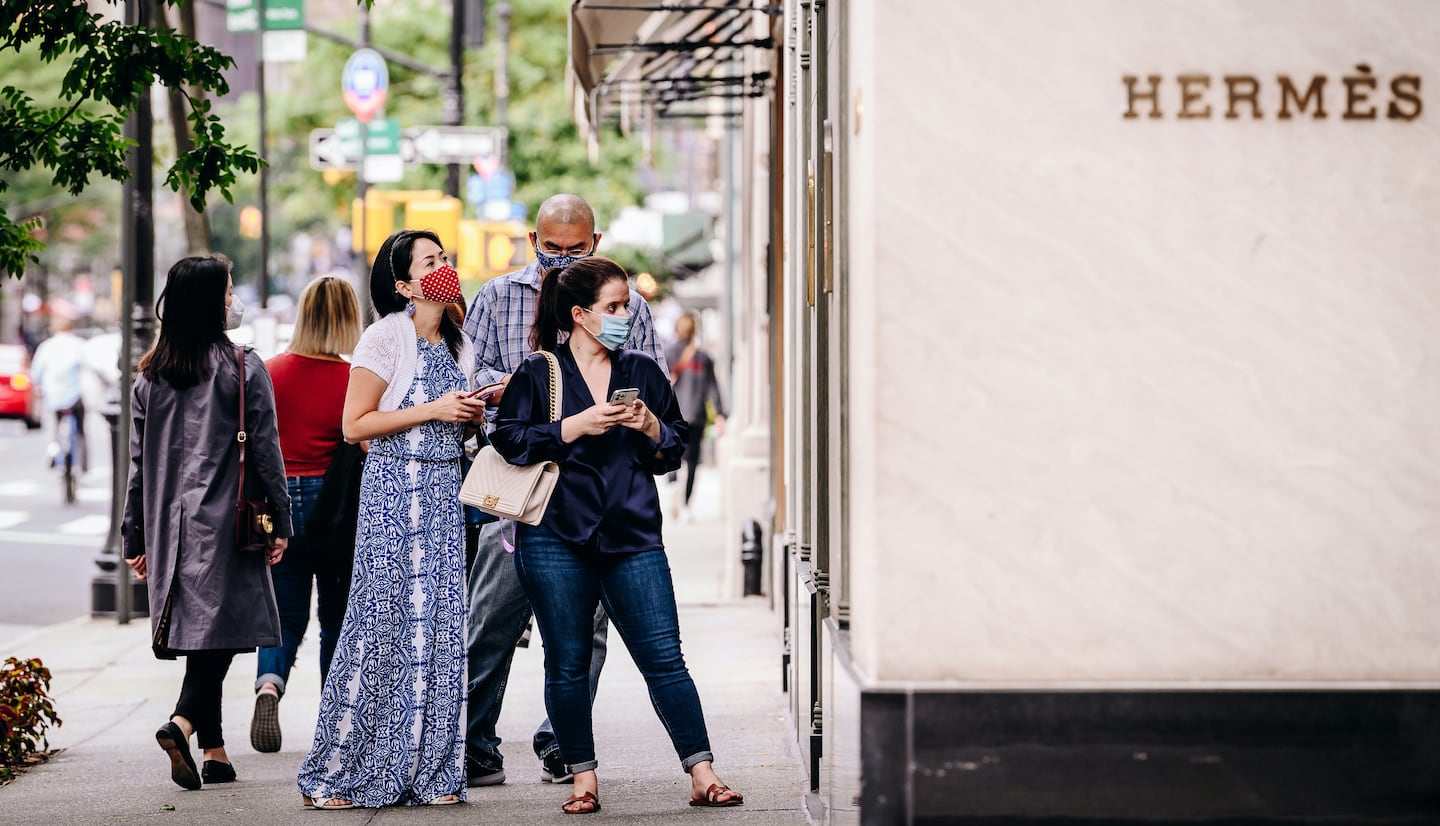
The Business of Fashion
Agenda-setting intelligence, analysis and advice for the global fashion community.

Agenda-setting intelligence, analysis and advice for the global fashion community.

A few months ago, some luxury brand managers in the US believed that, beyond the impact of the Covid-19 crisis, sales were being affected by a wait-and-see attitude to the upcoming presidential election. I don’t think there is any evidence to back this idea now and, if anything, luxury sales in the US have proven to be far more than just merely resilient given the coronavirus lockdowns and resulting economic crisis, a reality that was seen in strong third-quarter sales in the US at both LVMH and Kering.
A stroll down Madison Avenue and Fifth Avenue in Manhattan this weekend offered up an interesting contradiction. While most stores were boarded up ahead of potential civil unrest on election night and in the days to follow, plenty of people were queuing outside luxury boutiques. Of course, social distancing measures generate unnatural queues, but inside stores, it wasn’t exactly quiet, suggesting that consumers are eager to spend despite the headlines.
So, why are consumers purchasing luxury goods at present?
In mainland China, observers pointed to “revenge spending” in April of this year and here in the US, it’s fair to say there is also plenty of pent up demand. Wealthy consumers held back between March and June, but since July have come back with a vengeance. Historically, US demand for luxury goods has been correlated with the stock market, and while the S&P 500 had a rough time last week, it’s still only about 10 percent under its all-time high.
ADVERTISEMENT
Second, with a meaningful exodus from city centres like Manhattan at the height of the first Covid wave in April and again with the second wave in July, wealthy individuals have been snapping up new homes in the suburbs, sending prices surging. Prices in the Hamptons increased in price by an average 46 percent in Q3, according to a report compiled by appraisal firm Miller Samuel for real estate company Douglas Elliman. This has generated huge profits for sellers, resulting in splurges on luxury goods.
Third, like in China, but to a lesser extent, the US luxury market has benefited from a repatriation of luxury spending, as wealthy families used to flying to Europe in the summer stayed home. The trend towards “staycationing” has also meant that cash once spent on flights, hotels and Michelin-starred restaurants has been redirected.
Of course, equity markets, the property market and “staycationing” are susceptible to volatility. Indeed, economists and journalists say the outcome of today’s election will have dramatic consequences for tax rates, the stock market and overall economic prosperity, which should, in turn, have implications for luxury spending.
But the consequences of the election result on luxury demand are unclear, with observers offering contradictory analyses. And even as we have entered a third wave of Covid-19 infections in the US, demand for luxury seems unwavering.
Here, there are also long-term trends at play. For years, luxury demand in the US was held back by a "guilt factor" that was prevalent post-9/11 and again post-2008. Splashing out on a Gucci handbag or a Bulgari necklace was frowned upon, and seen as inappropriate or vulgar at the time. But today, brands are recruiting many new, young, consumers who are eager to buy and purchase iconic, logo-driven products.
Given the amount of wealth in the US, the underdeveloped nature of the luxury market relative to that wealth and the recent shift towards a mentality that says it’s appropriate to reward oneself, it’s clear to me that, taking a long view, America’s luxury market has good days ahead, whatever happens in this week’s election.
Erwan Rambourg is a luxury analyst and the author of ‘The Bling Dynasty: Why the Reign of Chinese Luxury Shoppers Has Only Just Begun’ (2014, Wiley) and the recently published ‘Future Luxe: What’s Ahead for the Business of Luxury’ (2020, Figure 1 Publishing).
The views expressed in Op-Ed pieces are those of the author and do not necessarily reflect the views of The Business of Fashion.
ADVERTISEMENT
How to submit an Op-Ed: The Business of Fashion accepts opinion articles on a wide range of topics. The suggested length is 700-1000 words, but submissions of any length within reason will be considered. All submissions must be original and exclusive to BoF. Submissions may be sent to opinion@businessoffashion.com. Please include 'Op-Ed' in the subject line and be sure to substantiate all assertions. Given the volume of submissions we receive, we regret that we are unable to respond in the event that an article is not selected for publication.
Related Articles:
[ The US Election: What’s at Stake for Fashion?Opens in new window ]
[ Luxury's Coronavirus Recovery: Who's Ahead and Who’s Behind?Opens in new window ]
[ Trouble Brewing for America’s Luxury SectorOpens in new window ]
The guidance was issued as the French group released first-quarter sales that confirmed forecasts for a slowdown. Weak demand in China and poor performance at flagship Gucci are weighing on the group.
Consumers face less, not more, choice if handbag brands can't scale up to compete with LVMH, argues Andrea Felsted.
As the French luxury group attempts to get back on track, investors, former insiders and industry observers say the group needs a far more drastic overhaul than it has planned, reports Bloomberg.
After growing the brand’s annual sales to nearly €2.5 billion, the star designer has been locked in a thorny contract negotiation with owner LVMH that could lead to his exit, sources say. BoF breaks down what Slimane brought to Celine and what his departure could mean.